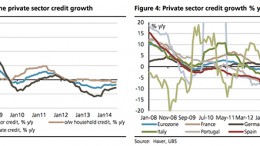FSB: tougher loss-absorbency homework for too-big-to-fail banks
MADRID | The Corner | The Financial stability board (FSB) is advocating an increase in regulatory demands of systemic banks: the so-called “too big to fail”. The details will be presented at tomorrow’s G20 meeting, but will effectively mean that more capital and liabilities can automatically be written off in a crisis. The basic requirement will be set at 15-20% of risk-weighted assets by 2019, although the final number will be higher (even more than 25% in certain cases) since lenders have to meet “other regulatory capital buffers,” according to the document, dated Sept. 21, quoted by Bloomberg.








